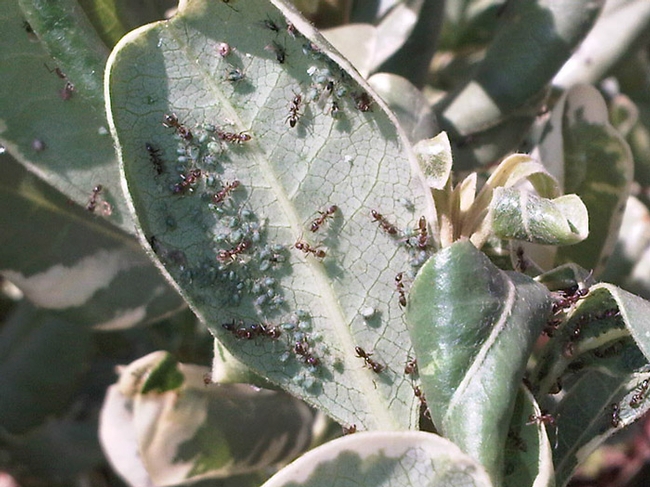- Author: Riva Flexer
I’ve been walking past this Pittosporum tobira ‘Variegata’ for at least five years now. It’s in my ‘kitchen’ raised bed, which should have become a vegetable bed, but, lacking enough sun and requiring major soil amendment, became a place to put plants that I could see from the kitchen. The pittosporum made its way there under false pretences. It’s supposed to produce sweet-smelling white flowers, but its attractive branch structure and variegated leaves are more interesting.
I’ve been pruning it back periodically, because it is really too big for the space, but my husband likes its location (hence the pruning). A few weeks ago, in a vain search for possible flower buds, I noticed that the new growth had aphids. Not only aphids, but a full complement of ants. It didn’t surprise me, but it means I will have to take some action.
Usually when there are aphids on my roses (which, in Quebec only happens in the spring), I wipe them off or remove them with a blast of water from the hose. If I feel it’s necessary, I’ll use some insecticidal soap solution, but that is rare. Of course, in California it seems as though it’s always spring, and pruning stimulates new growth. If you prune and fertilize, you’ll get lots of fresh, leggy, sweet-tasting new shoots.

So, the ants followed the honeydew trail, and they are "farming" the aphids for their that substance. They protect aphids from predators, like any good farmer, ants protect a food source, and they eat the aphid excrement. Now I have a dual problem. I’ll let you know what I do to solve it!



